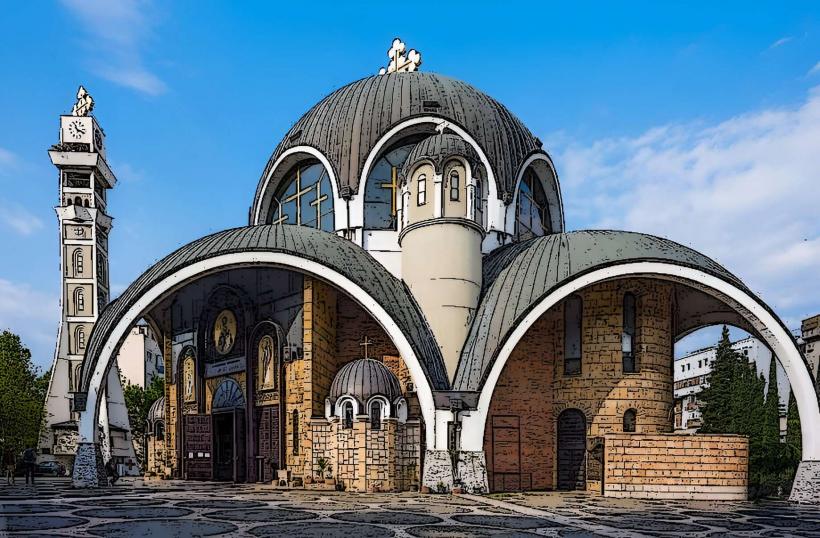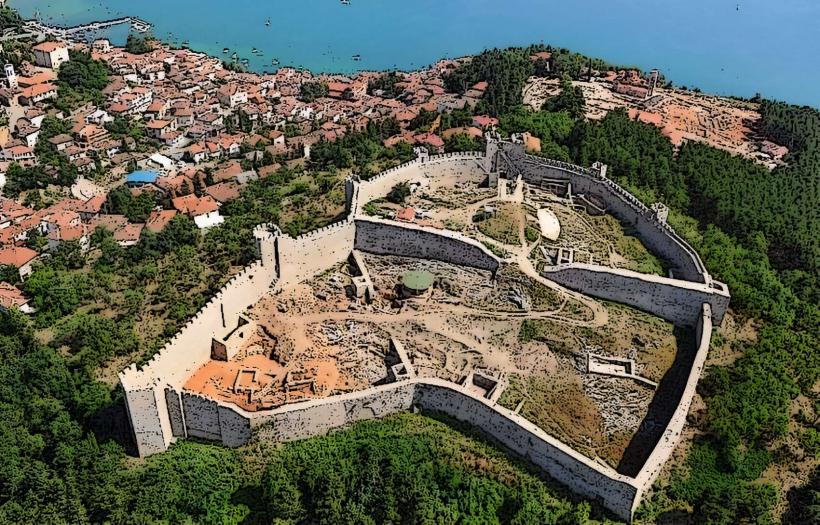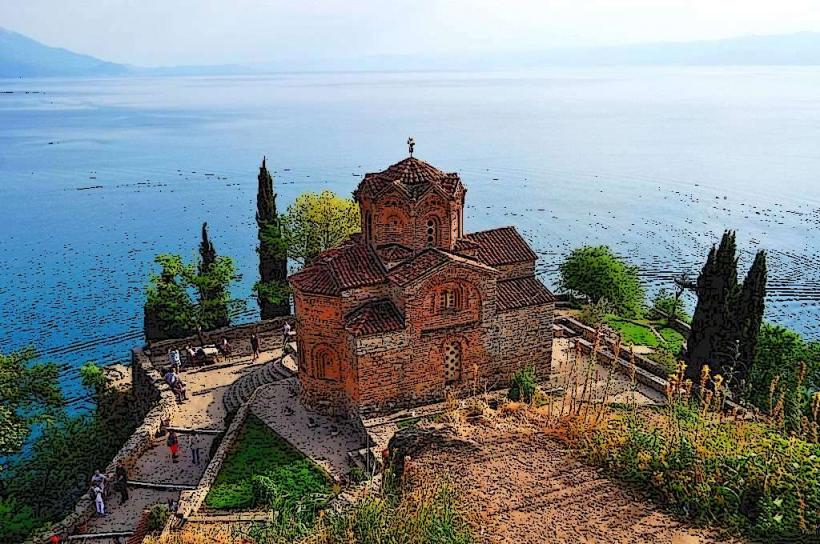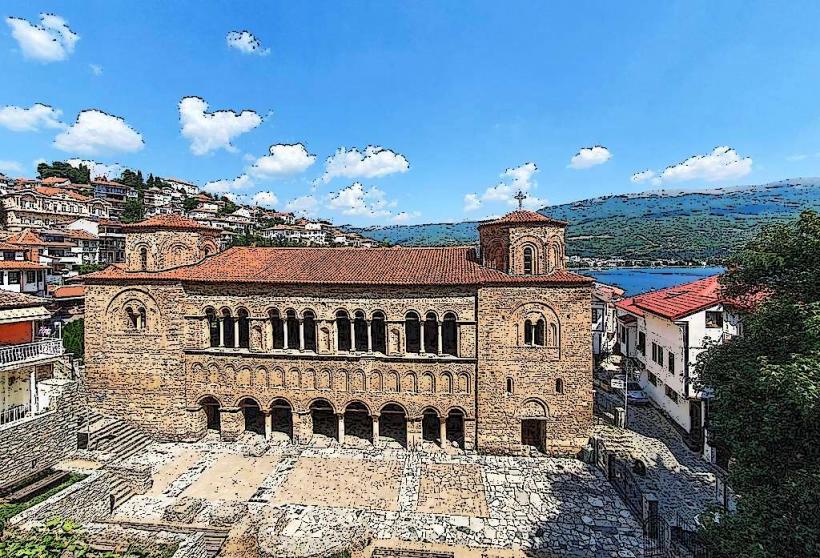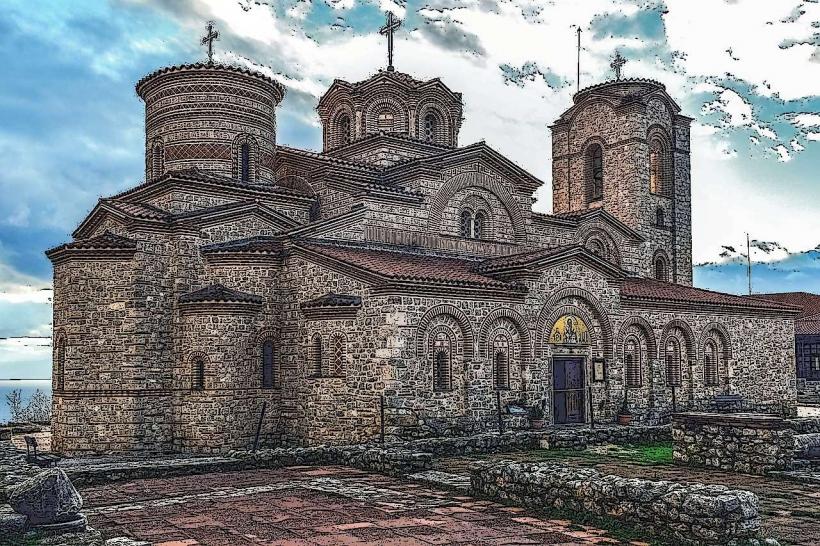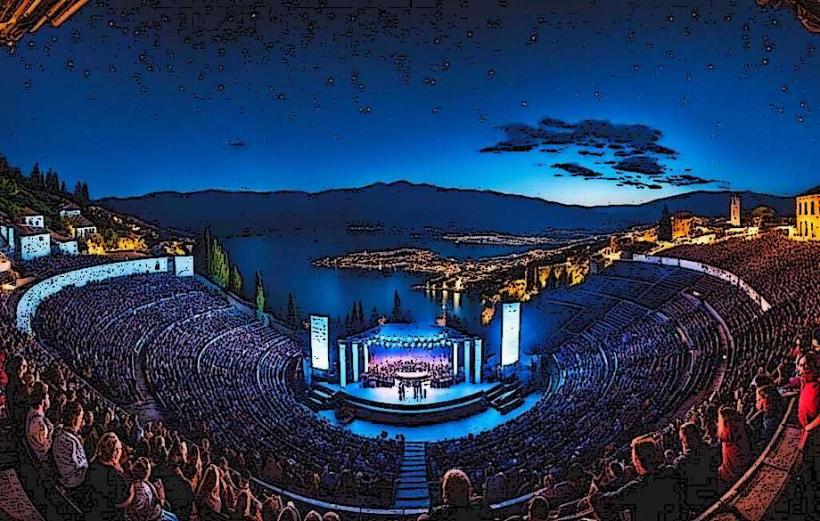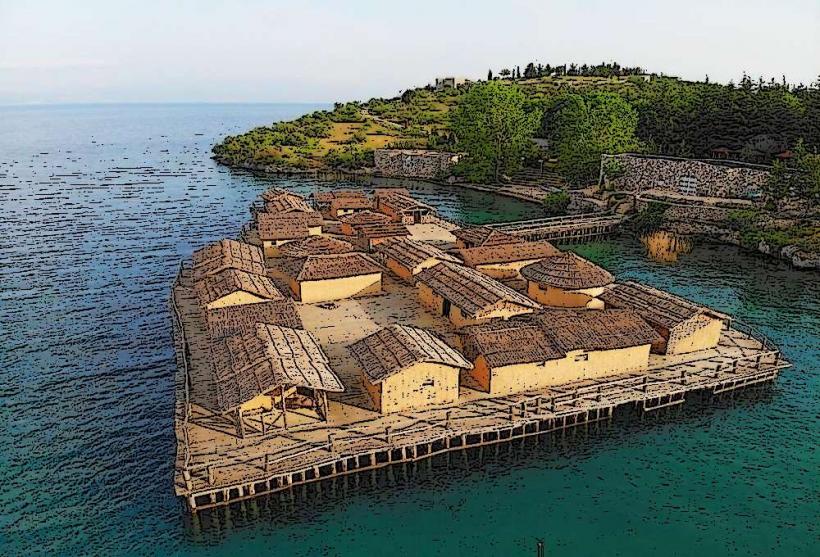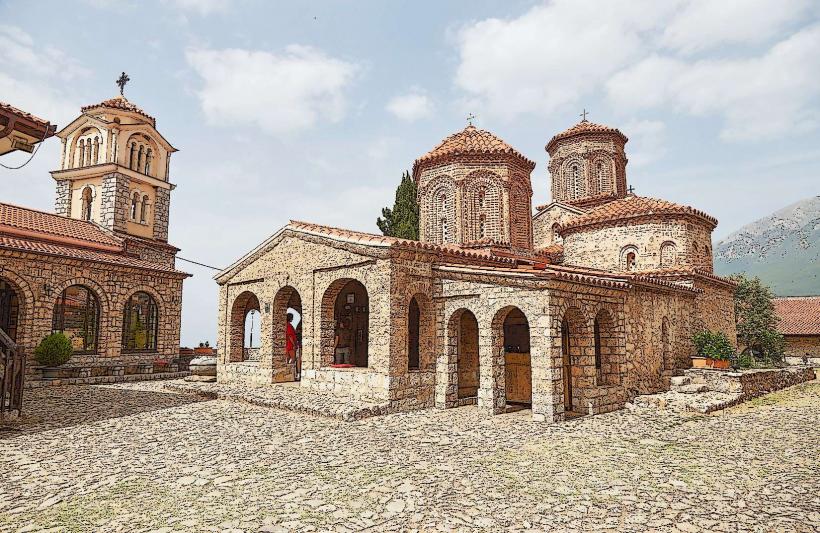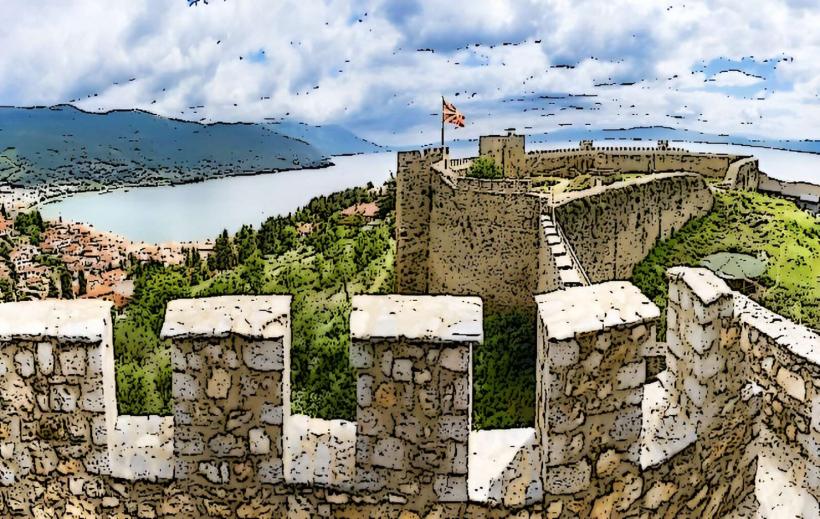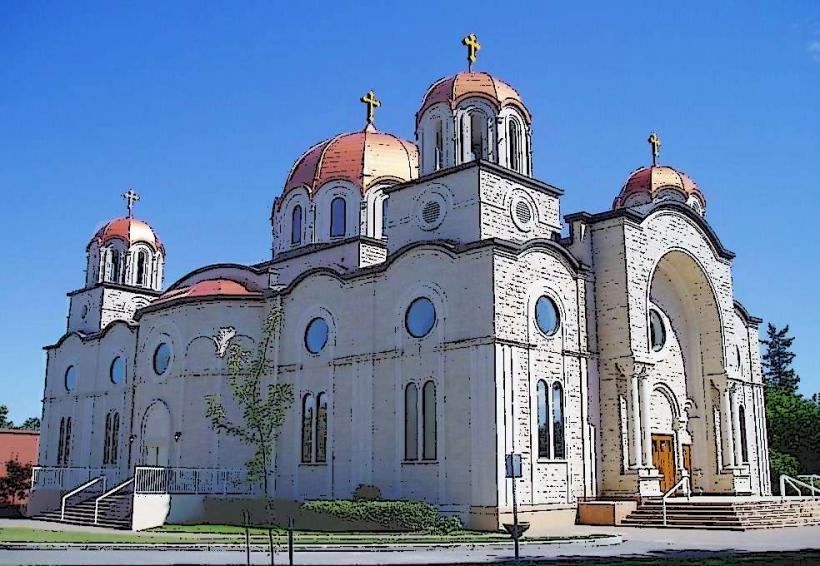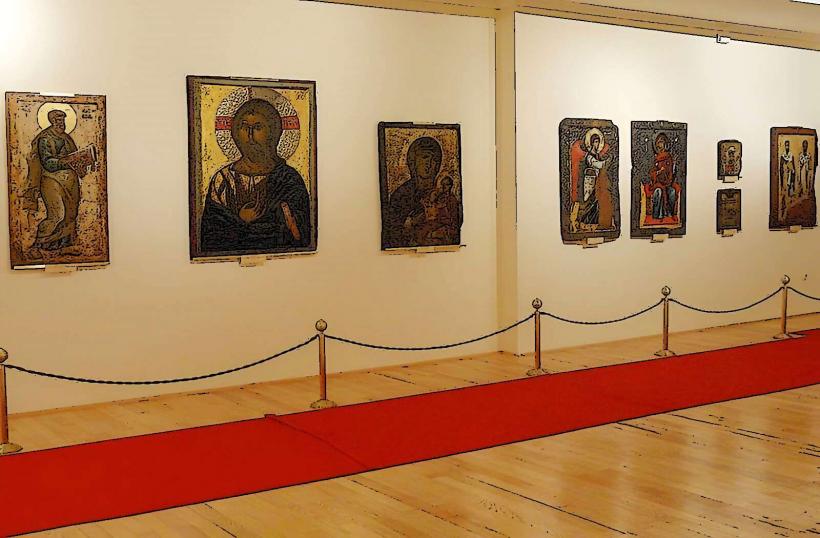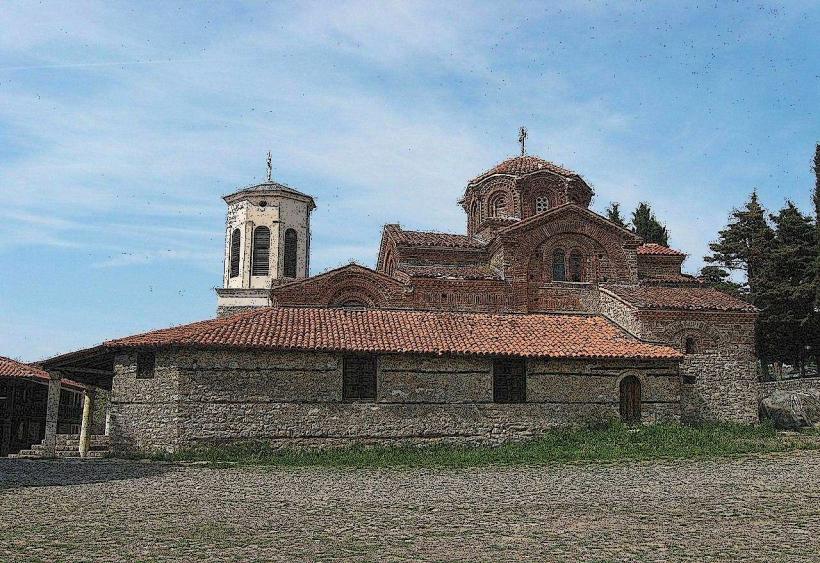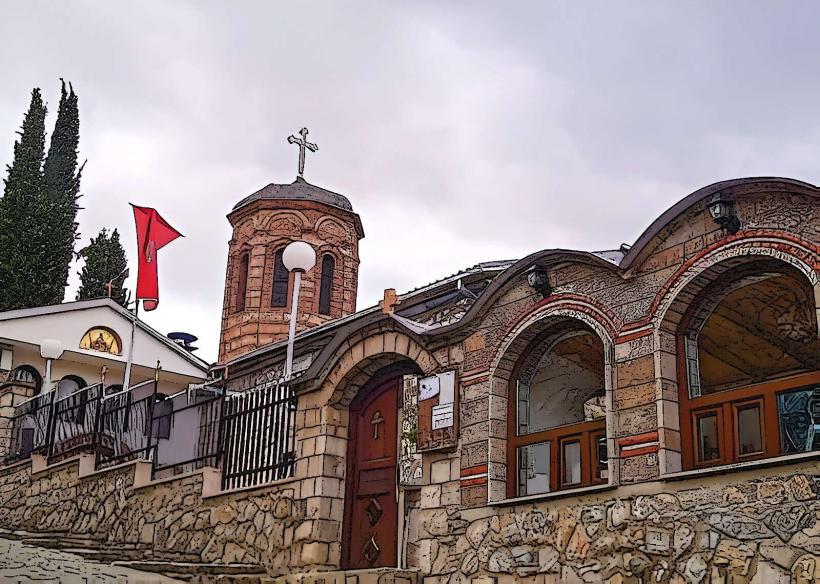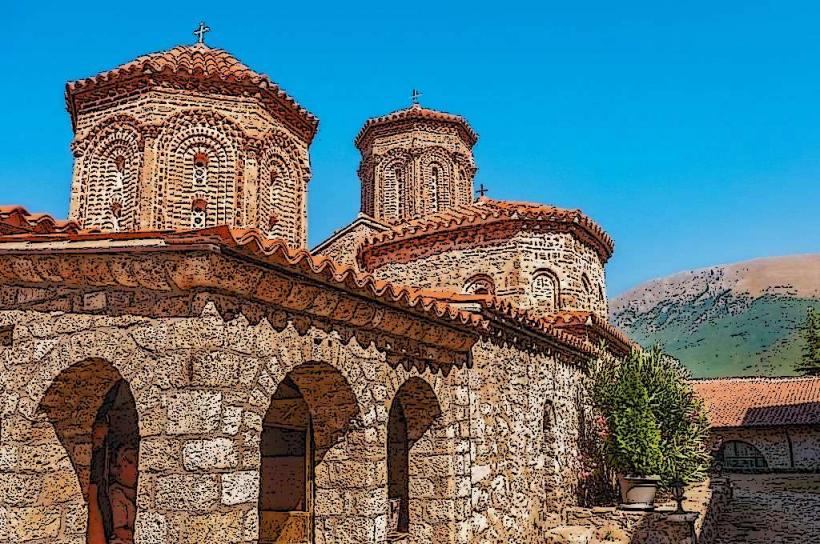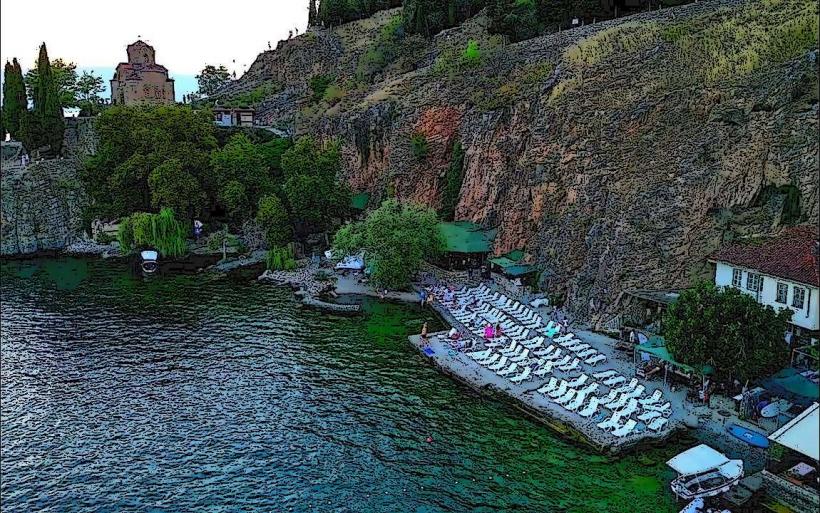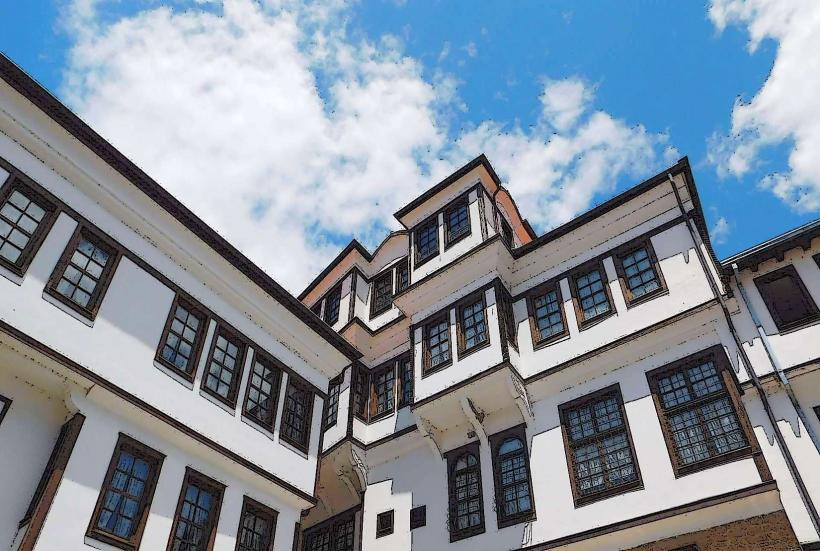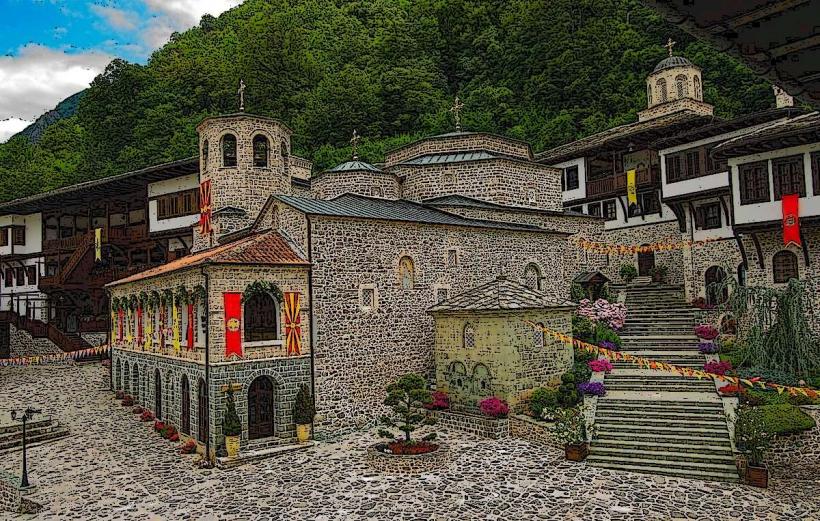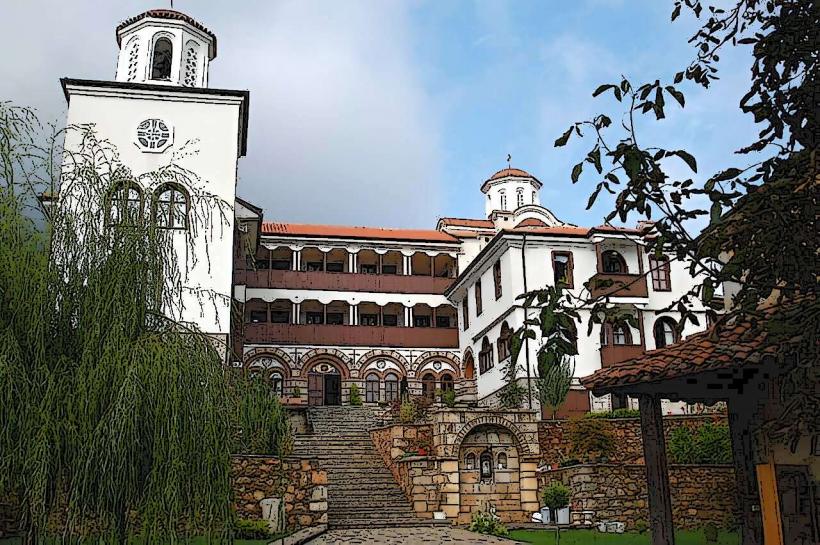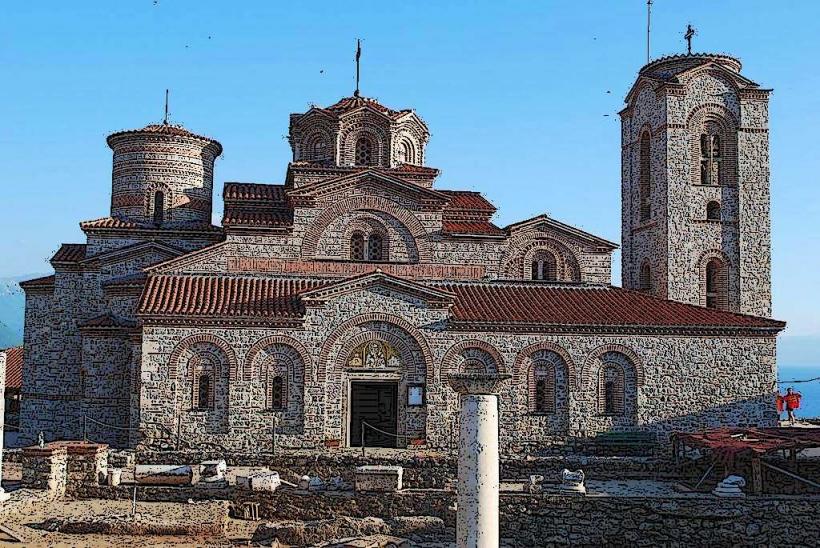Information
Landmark: Church of Holy Mother of God PeribleptosCity: Ohrid
Country: Hungary
Continent: Europe
The Church of St. Mother of God Peribleptos, also known as the Church of the Holy Mother of God Peribleptos (Macedonian: Црква Света Богородица Перивлепта), is one of the most significant medieval churches in Ohrid, North Macedonia. Known for its stunning Byzantine frescoes, historical importance, and architectural beauty, this church is a masterpiece of the Byzantine period.
Location:
- The church is located in the Old Town of Ohrid, perched on a hillside that offers a panoramic view of the city and Lake Ohrid.
- It is near the Samuel's Fortress and other historical landmarks, forming part of Ohrid’s UNESCO World Heritage Site.
Historical Background:
Construction:
- The church was built in 1295 by Progon Zgur, a Byzantine aristocrat and relative of Emperor Andronikos II Palaiologos. It was constructed during the Byzantine Empire's late period, a time of flourishing religious art.
Dedication:
- The church is dedicated to the Virgin Mary, also referred to as "Peribleptos," which means "All-Seeing" or "Most Glorious" in Greek. This title reflects the Virgin's exalted status in Orthodox Christian theology.
Role as a Religious Center:
- During the Ottoman occupation, the Church of St. Sophia was converted into a mosque, and St. Mother of God Peribleptos became the primary cathedral of Ohrid and the seat of the Archbishopric of Ohrid.
Preservation and Restoration:
- The church underwent restoration efforts in the 20th century to preserve its frescoes and architecture. It remains a key site for understanding Byzantine art and culture.
Architectural Features:
Byzantine Design:
- The church follows a cross-in-square design, typical of Byzantine architecture, with a central dome supported by four columns.
- It is constructed from stone and brick, with decorative elements that showcase the architectural elegance of the time.
Interior Layout:
- The church features a narthex, naos (main prayer area), and a central dome, all richly adorned with frescoes.
Exterior Elements:
- The exterior is relatively simple, focusing on structural harmony, while the interior is where the church’s artistic grandeur truly shines.
Frescoes and Iconography:
Masterpieces of Byzantine Art:
- The frescoes in St. Mother of God Peribleptos are among the finest examples of Byzantine art from the late 13th century. They were painted by two renowned artists, Michael Astrapas and Eutychios, who were part of the Thessaloniki School of Painting.
Themes and Subjects:
- The frescoes depict various biblical scenes, including the Life of the Virgin Mary, the Passion of Christ, and numerous saints.
- The Pantocrator (Christ Almighty) in the dome is a central focus, symbolizing Christ's divine authority over the universe.
Artistic Significance:
- The frescoes are noted for their expressiveness, emotional depth, and dynamic composition, marking a transition from the rigid styles of earlier Byzantine art to a more humanistic approach.
Cultural and Religious Importance:
Pilgrimage Site:
- The church remains an active place of worship and pilgrimage, especially on major feast days of the Virgin Mary.
Art and Scholarship:
- The frescoes have been studied extensively by art historians and theologians as prime examples of Byzantine religious art.
Role in Ohrid’s Heritage:
- Along with other historic churches, it underscores Ohrid's reputation as a "Jerusalem of the Balkans", a city with a deep spiritual and cultural legacy.
Tourism and Accessibility:
Visitor Experience:
- The church is open to visitors, who can admire its architecture and frescoes. Guided tours often include detailed explanations of the frescoes’ themes and artistic significance.
Nearby Attractions:
- It is located near other landmarks such as Plaošnik, the Church of St. Sophia, and Samuel’s Fortress, making it part of a rich historical and cultural itinerary.
Events and Activities:
- The church is used for religious ceremonies, including weddings and baptisms, and occasionally hosts concerts of sacred music due to its excellent acoustics.
Conclusion:
The Church of St. Mother of God Peribleptos stands as a testament to the spiritual, artistic, and architectural achievements of the Byzantine era. Its remarkable frescoes, historical significance, and serene setting make it one of Ohrid’s most treasured landmarks. For visitors to Ohrid, this church offers an unparalleled glimpse into the city’s rich Orthodox Christian heritage and Byzantine artistry.

